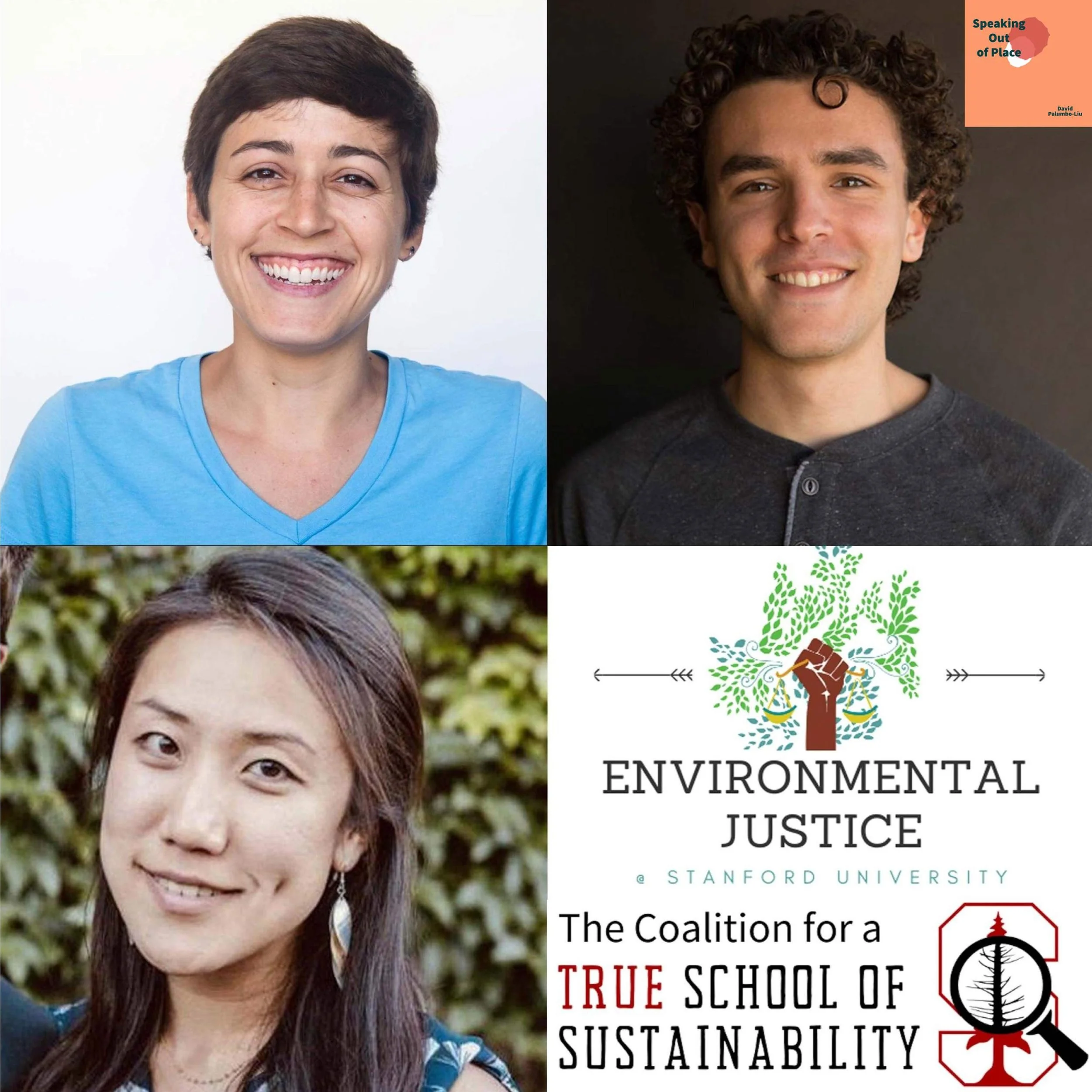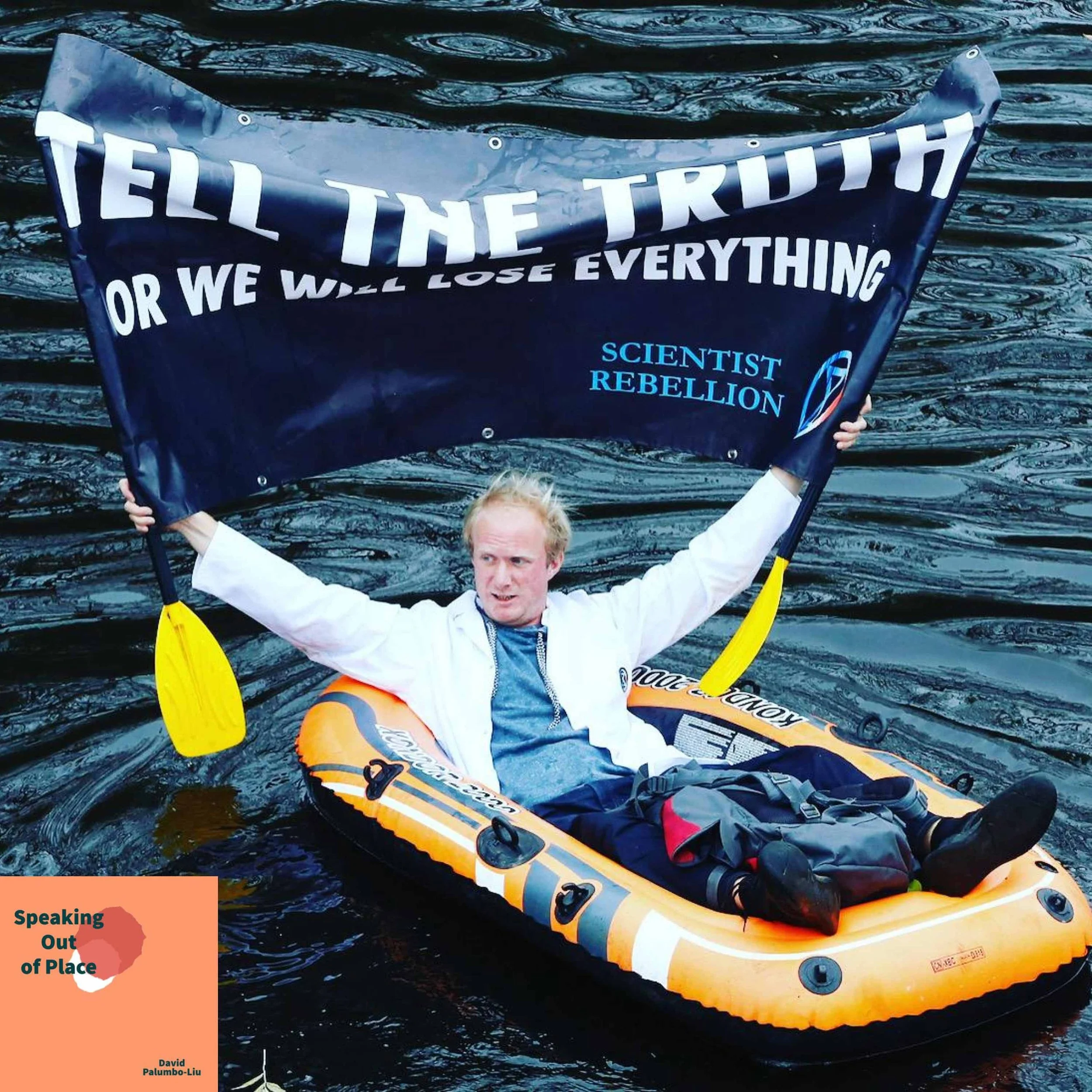In this episode of the Speaking Out of Place podcast, Professor David Palumbo-Liu speaks with June Choi, Yannai Kashtan, and Belinda Ramírez from the Coalition for a True School of Sustainability. Amidst great fanfare, Stanford University created the Doerr School for Sustainability, which immediately said that it would accept funding from the fossil fuel industry. June, Yannai, and Belinda are helping lead the movement of students pushing back to dissociate from such funds. David asks what drives them and sustains them in building a True School of Sustainability.
June Choi is a PhD candidate in Earth System Science at the Doerr School of Sustainability. Her research focuses on quantifying the impacts of climate change to inform adaptation strategies. Her previous work involved tracking global climate finance flows, setting standards for green bonds and sustainable finance integrity. She holds an MA in International Relations from John Hopkins University and BA in Sociology from Amherst College.
Yannai Kashtan is a PhD candidate in Earth System Science at the Doerr School of Sustainability, where he studies health-related hazards of residential fossil-fueled appliances. His most recent project quantified benzene emissions from gas and propane stoves. He earned a BA from Pomona College, where he majored in physics and chemistry and studied organic semiconductors.
Belinda Ramírez (they/them) teaches introductory liberal education courses at Stanford as a COLLEGE Fellow, including courses on environmental sustainability, food and culture, and climate/environmental/food justice. They also organize with Stanford’s Environmental Justice Working Group and the Coalition for a True School of Sustainability. Trained in cultural anthropology, their research deals with the social, racial/ethnic, political, and economic dimensions of urban agriculture and other food movements situated within the modern industrialized and corporatized global food system. In researching these topics, Belinda has come to recognize the fulfillment found in experiential learning and working firsthand to change their local food system, receiving agricultural training through local farms and community gardens in southern San Diego. They have also engaged in statewide political advocacy for young farmers through the National Young Farmers Coalition, served as both Board and Food Justice Co-Chair for Slow Food Urban San Diego, and worked as a Soil Farmer for Food2Soil. They consider themselves a farmer-scholar, bridging the worlds between praxis and theory, academia and tangible, on-the-ground work.
*
Speaking Out of Place, which carries on the spirit of Palumbo-Liu’s book of the same title, argues against the notion that we are voiceless and powerless, and that we need politicians and pundits and experts to speak for us.
Judith Butler on Speaking Out of Place:
“In this work we see how every critical analysis of homelessness, displacement, internment, violence, and exploitation is countered by emergent and intensifying social movements that move beyond national borders to the ideal of a planetary alliance. As an activist and a scholar, Palumbo-Liu shows us what vigilance means in these times. This book takes us through the wretched landscape of our world to the ideals of social transformation, calling for a place, the planet, where collective passions can bring about a true and radical democracy.”
David Palumbo-Liu is the Louise Hewlett Nixon Professor and Professor of Comparative Literature at Stanford University. He has written widely on issues of literary criticism and theory, culture and society, race, ethnicity and indigeneity, human rights, and environmental justice. His books include The Deliverance of Others: Reading Literature in a Global Age, and Speaking Out of Place: Getting Our Political Voices Back. His writing has appeared in The Washington Post, The Guardian, The Nation, Al Jazeera, Jacobin, Truthout, and other venues.
Bluesky @palumboliu.bsky.social
Apple Podcasts · Spotify · Website















































































